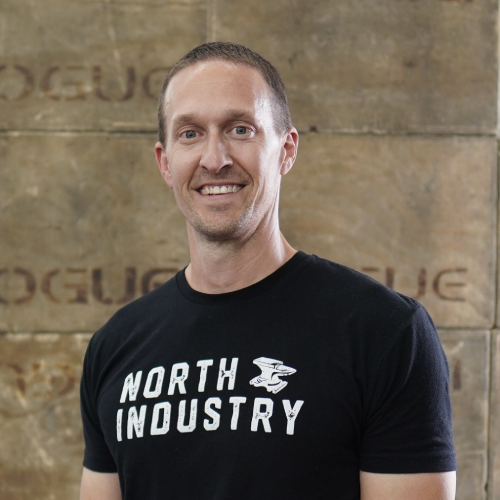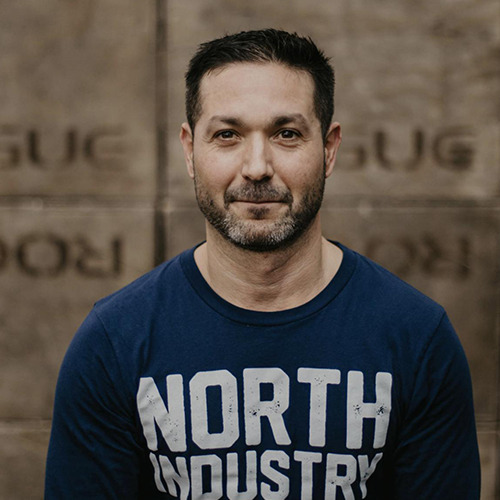Many fitness endeavors prioritize performance improvements. Weightlifting, Powerlifting, CrossFit, are a few that do this. There is a competitive side where you can actually go and compete in that sport. Being as strong or fast as possible is the goal. These programs create fitness no doubt, but prioritizing fitness gains and performance has a cost. Pursuing performance in most programs requires you pushing yourself to the edge of what you can do on a regular basis. This will increase the rate of adaptation (improvement), but also increases the probability of something going wrong and injuring yourself. When you push to your limits, you will find them.
(Side note: yes, we are a CrossFit, but we have morphed into a more balanced program—prioritizing frequency over intensity, as one example. We still use some CrossFit methodologies, but not all of them.)
At North Industry we do not put performance first. It can be fun and add another dimension to your training, but when you play a sport you are taking on all the risks that come from playing a sport—injury, overuse, burnout, orthopedic problems. Unless you’re getting paid to perform, it just doesn’t make sense to us. Everyone has to ask themselves, is the extra fitness gained by pushing like it’s a sport or competing, worth the increased risk of injury? I for one have decided that it is not. And our coaches agree. In our estimation, you can gain 85% of your potential fitness on 75-85% efforts. The major benefits to 75-85% efforts are reducing the risk of injury greatly, and they are maintainable and repeatable. Frequency wins out over intensity. This has been shown time and time again. And since most people are pursuing health and fitness, not a sport, you have to ask yourself—are you really any healthier if your deadlift is 300lb vs 260lb? Does that extra 40lbs make your body work or feel any better, or avoid disease and live longer? It sure doesn’t. Unless you are competing, there is no advantage to pushing yourself to the limit.
Now this doesn’t mean we don’t test limits. We certainly do. But it is a planned event, and not every time we workout. We pursue improvement. We look at fitness and health as a long game. So, if improving how your body moves and feels, and its resilience to stress and disease is more important to you than the numbers on a leaderboard, you have found the right place.
Keep a healthy perspective. Compare yourself to yourself. Pursue enjoying your time at the gym and making small improvements. It’s the best long term approach to health and fitness.
For a healthier future through personal responsibility,
Dennis Fenrich
Follow me:
@CFNorthIndustry for Twitter
@CrossFItNorthIndustry for Facebook







